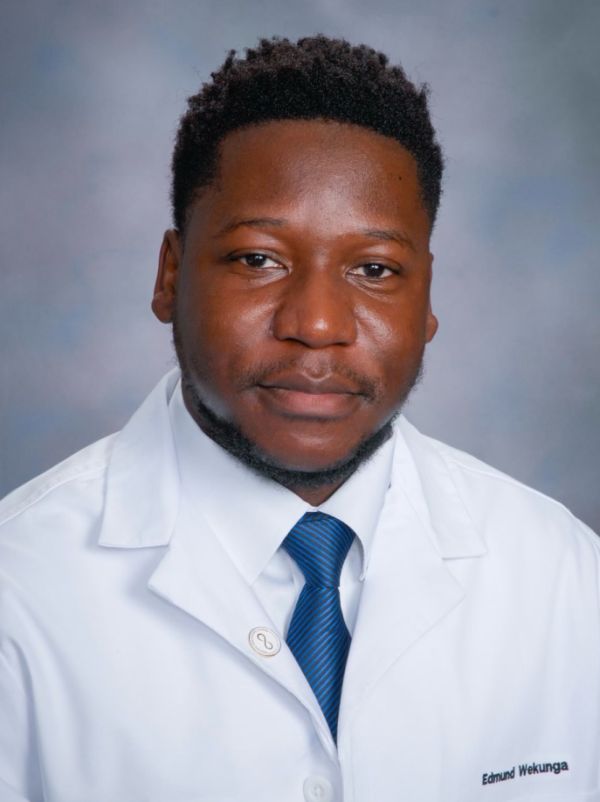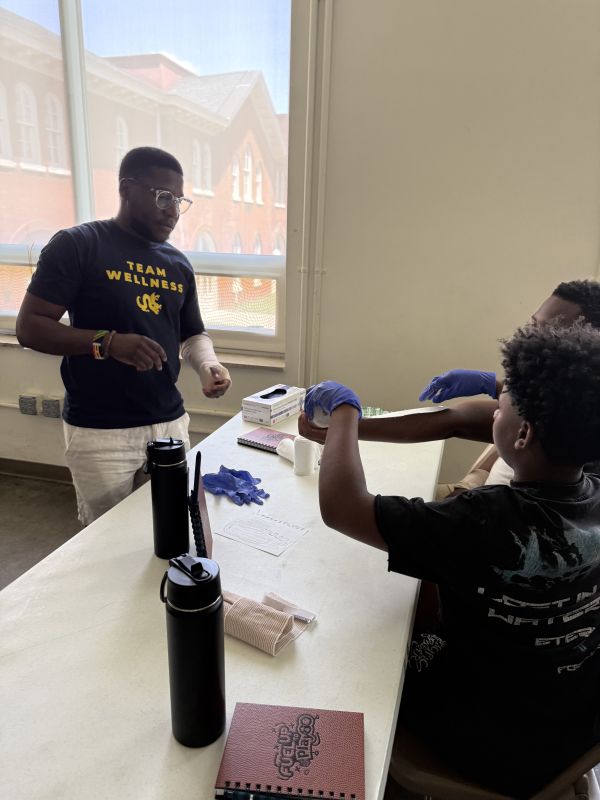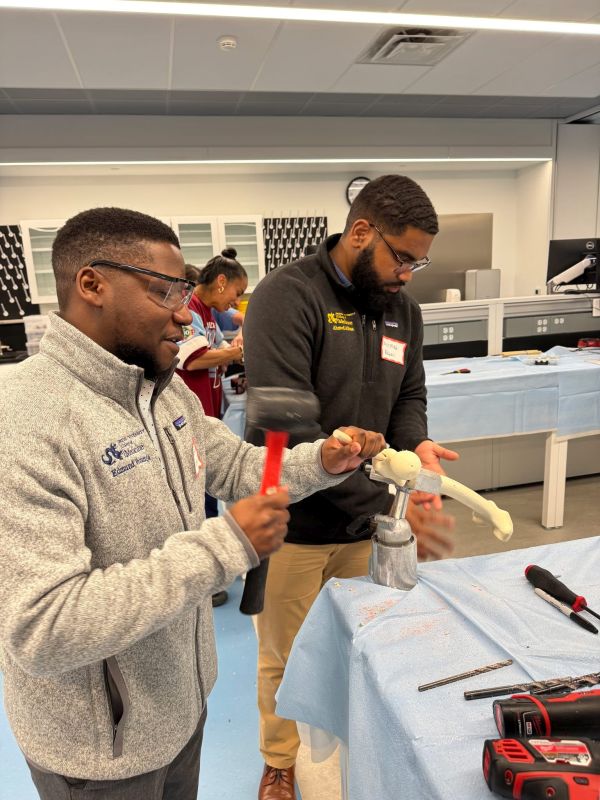
Hometown: Lansdale, Pennsylvania/Jinja, Uganda
Previous Education: Bachelor of Science in Biology, Penn State–Abington; Master of Science, Drexel Pathway to Medical School
Can you tell me a little bit about yourself before you came to Drexel?
I am originally from Uganda, a small country in East Africa, and I moved to the United States in 2018. My family and I are now based in Montgomery County, Pennsylvania. In 2019, I began my undergraduate studies at Pennsylvania State University–Abington, where I earned a Bachelor of Science in Biology with research honors in organic chemistry. Interestingly, I had once applied to Drexel for undergrad but was not accepted. Looking back, it was simply a matter of timing and circumstances, because I ultimately found my way here for medical school, which feels like the right fit.
At Penn State, I worked as a peer tutor in chemistry, biology and math. Tutoring was one of the most fulfilling parts of my college experience — I loved being able to positively impact the academic journeys of my peers, and I was fortunate to have supportive supervisors and colleagues. I was also part of the Schreyer Honors College, where I gained early exposure to research. My honors thesis was “Synthesis & Characterization of 2-Aryl-3-Cyclohexyl-1,3-Thiazolidin-4-One Triphenyltin Chloride Complexes.”
Outside of academics, I worked as a pharmacy technician at Holy Redeemer Hospital (now Redeemer Health), which gave me valuable insight into the hospital setting. I also volunteered with the Hospital Elder Life Program (HELP) at Abington Jefferson Hospital, where I engaged with senior patients to help prevent hospital delirium. This experience was especially meaningful because it gave me an opportunity to give back to the same community that was supporting my education.

What made you choose Drexel?
I had always wanted to be part of Drexel, even from my undergrad days. What stood out to me was Drexel’s strong commitment to student career development and its rich diversity among both students and faculty. After completing my undergraduate studies, I felt that pursuing a master's degree would strengthen my preparation for medical school. When I compared programs, the Drexel Pathway to Medical School (DPMS) program stood out as the best fit — and it turned out to be the right decision, because completing the master's program ultimately opened the door to Drexel’s medical school.
How have your experiences shaped your decision to pursue an MD program at Drexel?
I knew from a young age that I wanted to become a physician. Growing up in Uganda, I saw firsthand the challenges of a health care system with limited resources. Many rural health facilities lacked both physicians and medications, leading to countless preventable deaths. That reality left a lasting impression on me and motivated me to pursue medicine.
In high school, I also volunteered at the National Cancer Institute in Uganda, where I interacted with pediatric patients battling cancer. Those encounters were heartbreaking, but they strengthened my resolve to pursue medicine as a way of making a difference for patients and communities in need.
What are your next steps professionally and/or academically?
Right now, I am strongly interested in pursuing a career in orthopedic surgery — specifically sports medicine. It’s an extremely competitive specialty, so as a second-year medical student, I am working to build a strong foundation through research, clinical experiences and leadership activities that will make me a well-rounded and competitive applicant.
Can you tell me about your research?
I am involved in several projects, but I’ll highlight the ones where I play a leading role. This past summer, through the Rothman Opioid Foundation Summer Research Fellowship, I completed a project analyzing the predictive factors and barriers to compliance in chronic pain patients' adherence to opioid therapy. I presented this work at the end of the program, and it will soon be published online on the Rothman Opioid Foundation Institute’s research page.
I am also working on a retrospective cohort study at the Rothman Institute evaluating how obesity affects outcomes after posterior medial meniscus root repair. Additionally, I am leading a project investigating musculoskeletal physicians’ attitudes toward lifestyle medicine using a survey-based approach.

Are you involved with any extracurricular activities? How do these support your academic journey?
Yes — I hold leadership positions in three student organizations: the Student National Medical Association (SNMA), the Orthopedic Surgery Interest Group (OSIG), and the Drexel African Medical Student Association (DAMSA).
For me, DAMSA and SNMA provide spaces to build community, celebrate culture and support peers who share similar backgrounds and challenges. On the other hand, OSIG gives me the opportunity to learn more about my field of interest, connect with mentors, and collaborate with like-minded peers who are passionate about orthopedics.
Equally important, I am deeply involved in community work through the College of Medicine’s Office of Community Health and Inclusive Excellence. I help plan and coordinate free health screenings in Philadelphia neighborhoods. In the past four months alone, our team has screened over 1,200 individuals for blood pressure, blood sugar and vision issues. This past summer, I also led two splinting workshops for high school students. These experiences remind me why I chose this path — bringing health care and education to communities that need it most.
What do you like to do outside of school?
I’m a big sports fan. I follow the Eagles, Arsenal and LeBron James with the Lakers, so if I’m not studying, I’m probably watching a game. I also enjoy playing soccer and basketball recreationally. Outside of sports, I like going to the movies and spending time with friends/family.
What advice would you give to an aspiring MD student?
My biggest piece of advice would be don’t let yourself get overwhelmed by comparing your journey to others. At one point, I worried I wasn’t doing enough to be competitive for medical school. But I stayed focused, found balance and trusted the process — and now here I am. You don’t need to do everything — just make sure you’re well-rounded, true to yourself and consistent in your efforts. That’s enough.
Contact Information
Drexel University College of Medicine
Office of Admissions
60 N. 36th Street, Philadelphia, PA 19104
215.991.8202
Back to Top